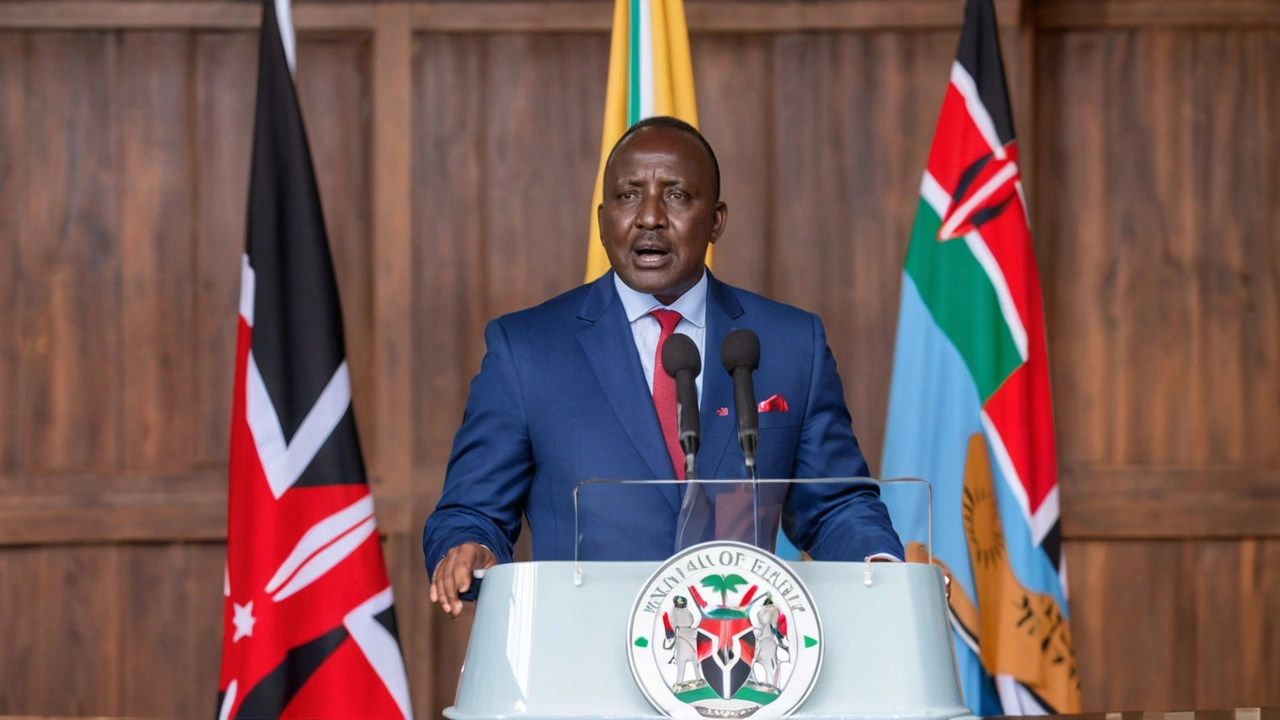Kenya Targets NGOs Over Protest Links
In a significant move aimed at curbing what it perceives as undue influence and potential illegal activities, the Kenyan government has identified and listed 16 non-governmental organizations (NGOs) that it suspects of being involved in recent anti-government demonstrations. This development has heightened tensions between civil society and the state, shedding light on the complex and often contentious relationship between these entities. The government’s scrutiny is focused on the funding and activities of these NGOs, raising questions about the transparency and legality of their operations.
The Kenyan authorities have directed their attention towards the Ford Foundation, a prominent international NGO known for supporting numerous local organizations. The government has issued a formal communication to the Ford Foundation, requesting comprehensive information about the grants it has provided over the past year. Specifically, the authorities are concerned about substantial funds totaling US$5.78 million (approximately Kenya Shillings 752 million) that these NGOs have received between April 2023 and May 2024. Alarmingly, US$1.49 million (around Kenya Shillings 194 million) was disbursed in just the past month, fueling suspicions and prompting further investigations.
Linking Protests to Financial Support
The timing and scale of the protests, particularly those against the Finance Bill, which have at times descended into anarchic mobilizations, have amplified the government’s concerns. These protests, which reflect deep-rooted discontent among various segments of the population, have been marred by violent clashes and disruptions. The government's narrative argues that these NGOs have not only provided logistical support but also financial backing, which may have enabled the escalation of these events. Consequently, the demand for transparency from the Ford Foundation and its grantees is seen as a preventive measure to ensure that funds are not being utilized to contravene Kenyan laws or incite instability.
Detailed Reports and Compliance
In its letter to the Ford Foundation, the Kenyan government has outlined four specific demands. Firstly, it seeks a detailed list of all grantees from the past year, including the exact amounts disbursed to each organization. This is seen as the first step in mapping the financial trails and understanding the distribution of funds. Secondly, the authorities have asked for comprehensive reports on the programs these NGOs are involved in, with a particular emphasis on the budgets allocated for each project. The objective here is to ascertain whether the funds are being used for their intended purposes or if there are discrepancies.
The third demand involves a thorough account of the activities these NGOs have undertaken, the costs incurred, and the beneficiaries of their initiatives. This aspect is crucial for evaluating the impact and legitimacy of their operations. Lastly, the government seeks clarity on the Ford Foundation’s compliance with its Non-Lobbying Policy and expects detailed information on any internal sanctions imposed for breaches of legal or organizational policies.
Reactions and Implications
The government's actions have elicited varied responses from different stakeholders. Supporters argue that this level of scrutiny is necessary to maintain law and order and ensure that foreign funds are not used to destabilize the country. They assert that transparency in how funds are utilized is crucial for maintaining the integrity of civil society organizations and upholding the rule of law.
On the other hand, critics contend that this move may be a veiled attempt to stifle dissent and silence organizations that challenge government policies. They argue that NGOs play a vital role in advocating for social justice, human rights, and accountability, and that excessive government interference could undermine civil liberties and democratic processes.
In the backdrop of these developments lies a broader discourse on the role of foreign funding in civil society activities. Kenya, like many other countries, has a vibrant NGO sector that relies significantly on funding from international donors. This financial support is often crucial for implementing programs that address various social, economic, and environmental issues. However, the utilization and impact of such funds have always been a subject of scrutiny and debate.
The Path Forward
As the Kenyan government moves forward with its investigations, the outcomes could have far-reaching implications for both the NGO sector and the broader political landscape. If evidence is found of misuse or illegal activities, it could lead to stricter regulations and monitoring of NGO operations. Conversely, if the NGOs can substantiate their innocence and compliance, it could strengthen their legitimacy and underscore the importance of transparency in their operations.
For the Ford Foundation, responding to these demands involves balancing compliance with the Kenyan government’s requests and safeguarding the interests and privacy of its grantees. The foundation’s response could set a precedent for how international NGOs handle similar situations in other countries, highlighting the complex dynamics between governmental oversight and the autonomy of civil society organizations.
In conclusion, the ongoing scrutiny of these 16 NGOs and the involvement of the Ford Foundation highlight critical issues around funding, transparency, and accountability within the civil society sector. This episode serves as a reminder of the delicate balance that must be maintained to ensure that NGOs can operate effectively and ethically while adhering to national laws and policies.














